Authors & editors
ANU Press has collaborated with a diverse range of authors and editors across a wide variety of academic disciplines. Browse the ANU Press collection by author or editor.

The Ayes Have It »
The history of the Queensland Parliament, 1957–1989
Authored by: John Wanna, Tracey Arklay
Publication date: July 2010
‘The Ayes Have It’ is a fascinating account of the Queensland Parliament during three decades of high-drama politics. It examines in detail the Queensland Parliament from the days of the ‘Labor split’ in the 1950s, through the conservative governments of Frank Nicklin, John Bjelke- Petersen and Mike Ahern, to the fall of the Nationals government led briefly by Russell Cooper in December 1989. The volume traces the rough and tumble of parliamentary politics in the frontier state. The authors focus on parliament as a political forum, on the representatives and personalities that made up the institution over this period, on the priorities and political agendas that were pursued, and the increasingly contentious practices used to control parliamentary proceedings. Throughout the entire history are woven other controversies that repeatedly recur – controversies over state economic development, the provision of government services, industrial disputation and government reactions, electoral zoning and disputes over malapportionment, the impost of taxation in the ‘low tax state’, encroachments on civil liberties and political protests, the perennial topic of censorship, as well as the emerging issues of integrity, concerns about conflicts of interest and the slide towards corruption. There are fights with the federal government – especially with the Whitlam government – and internal fights within the governing coalition which eventually leads to its collapse in 1983, after which the Nationals manage to govern alone for two very tumultuous terms. On the non-government side, the bitterness of the 1950s split was reflected in the early parliaments of this period, and while the Australian Labor Party eventually saw off its rivalrous off-shoot (the QLP-DLP) it then began to implode through waves of internal factional discord.

China's New Place in a World in Crisis (Chinese version) »
全球金融危机下的中国:经济、地缘政治和环境的视角
Edited by: Ross Garnaut, Ligang Song, Wing Thye Woo
Publication date: June 2010
2008年的金融危机,使全球状况和中国的世界地位都发生了改变。这场危机加速了中国作为一个有影响力的大国的崛起。本书将对下列问题进行深入探讨:此次全球危机会对中国的增长前景长造成怎样的影响?这场危机的演化和中国的应对举措,会对中国的工业化、城市化进程以及国有企业改革等问题施加何种影响?国际社会将如何应对迅速出现的国际新秩序?中国和其他主要发展中国家将在国际社会中担当怎样的新角色?中国和世界能否打破经济增长和破坏环境的宿命,尤其是如 何解决气候变化问题?
Chinese print version of this book is available from Social Science and Academic Press

Education and Ethics in the Life Sciences »
Strengthening the Prohibition of Biological Weapons
Edited by: Brian Rappert
Publication date: June 2010
At the start of the twenty-first century, warnings have been raised in some quarters about how – by intent or by mishap – advances in biotechnology and related fields could aid the spread of disease. Science academics, medical organisations, governments, security analysts, and others are among those that have sought to raise concern.
Education and Ethics in the Life Sciences examines a variety of attempts to bring greater awareness to security concerns associated with the life sciences. It identifies lessons from practical initiatives across a wide range of national contexts as well as more general reflections about education and ethics. The eighteen contributors bring together perspectives from a diverse range of fields – including politics, virology, sociology, ethics, security studies, microbiology, and medicine – as well as their experiences in universities, think tanks and government.
In offering their assessment about what must be done and by whom, each chapter addresses a host of challenging practical and conceptual questions. Education and Ethics in the Life Sciences will be of interest to those planning and undertaking training activities in other areas. In asking how education and ethics are being made to matter in an emerging area of social unease, it will also be of interest to those with more general concerns about professional conduct.

Australian Humanities Review: Issue 48, 2010 »
Edited by: Monique Rooney, Russell Smith
Publication date: June 2010
Australian Humanities Review is a peer-reviewed interdisciplinary journal featuring articles, essays and reviews focusing on a wide array of topics related to literature, culture, history and politics.
Download for free
Not available for purchase

Dealing with Uncertainties in Policing Serious Crime »
Edited by: Gabriele Bammer
Publication date: May 2010
Grappling with uncertainties is at the heart of investigating serious crime. At a time when such crime is becoming more complex and resources are increasingly stretched, this book draws together research and practice perspectives to review fruitful approaches to uncertainties and to chart the way forward. Scene setting chapters describe the consequences of globalisation and the spread of sophisticated information technologies (Sue Wilkinson), as well as advances in understanding and managing uncertainty (Michael Smithson). Ways of enhancing responses from statistics (Robyn Attewell), risk analysis (Richard Jarrett and Mark Westcott) and the psychology of decision making (Mark Kebbell, Damon Muller and Kirsty Martin) follow. These are complemented by insights from law (the Hon. Tim Carmody SC), politics (the Hon. Carmen Lawrence) and business (Neil Fargher), which all have significant intersections with policing. Synthesis is provided by the four final chapters which present the outlooks of the investigating officer and investigation manager (Peter Martin), the provider of policing higher education (Tracey Green and Greg Linsdell), the capacity-building consultant (Steve Longford), and the leader of a law enforcement agency (Alastair Milroy).

The Power of Economic Ideas »
The origins of Keynesian macroeconomic management in interwar Australia 1929–39
Authored by: Alex Millmow
Publication date: May 2010
Economics, Keynes once wrote, can be a ‘very dangerous science’. Sometimes, though, it can be moulded to further the common good though it might need a leap in mental outlook, a whole new zeitgeist to be able do do. This book is about a transformation in Australian economists’ thought and ideas during the interwar period. It focuses upon the interplay between economic ideas, players and policy sometimes in the public arena. In a decade marked by depression, recovery and international political turbulence Australian economists moved from a classical orthodox economic position to that of a cautious Keynesianism by 1939.
We look at how a small collective of economists tried to influence policy-making in the nineteen-thirties. Economists felt obliged to seek changes to the parameters as economic conditions altered but, more importantly, as their insights about economic management changed. There are three related themes that underscore this book. Firstly, the professionalisation of Australian economics took a gigantic leap in this period, aided in part, by the adverse circumstances confronting the economy but also by the aspirations economists held for their discipline. A second theme relates to the rather unflattering reputation foisted upon interwar economists after 1945.
That transition underlies a third theme of this book, namely, how Australian economists were emboldened by Keynes’s General Theory to confidently push for greater management of economic activity. By 1939 Australian economists conceptualized from a new theoretic framework and from one which they advanced comment and policy advice. This book therefore will rehabilitate the works of Australian interwar economists, arguing that they not only had an enviable international reputation but also facilitated the acceptance of Keynes’s General Theory among policymakers before most of their counterparts elsewhere.

East Asia Forum Quarterly: Volume 2, Number 2, 2010 »
Publication date: May 2010
East Asia Forum Quarterly grew out of East Asia Forum (EAF) online, which has developed a reputation for providing a platform for the best in Asian analysis, research and policy comment on the Asia Pacific region in world affairs. EAFQ aims to provide a further window onto research in the leading research institutes in Asia and to provide expert comment on current developments within the region. The East Asia Forum Quarterly, like East Asia Forum online, is an initiative of the East Asia Forum (EAF) and its host organisation, the East Asian Bureau of Economic Research (EABER) in the Crawford School of Economics and Government in the College of Asia & the Pacific at The Australian National University.
Download for free
Not available for purchase
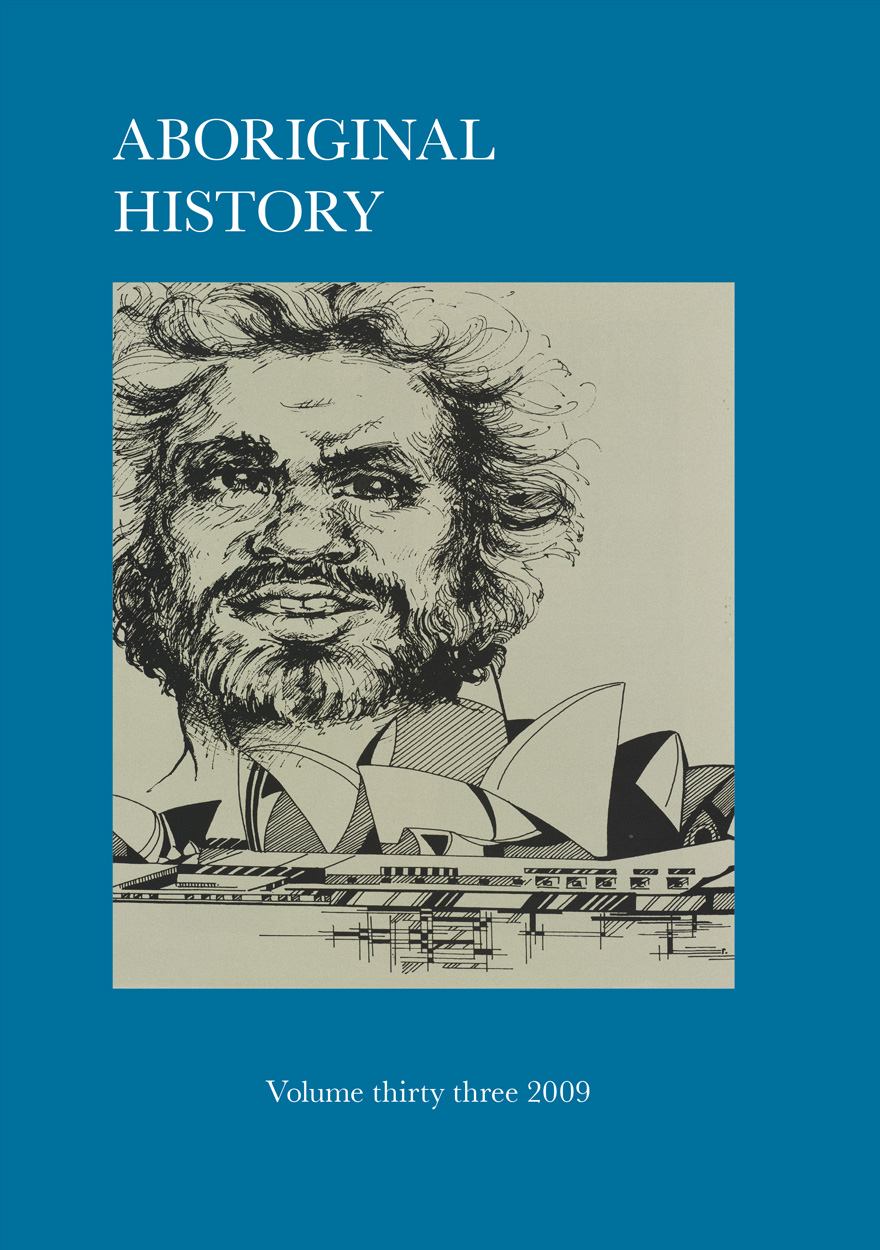
Aboriginal History Journal: Volume 33 »
Edited by: Peter Read
Publication date: April 2010
In her recent magisterial history of early Sydney, Grace Karskens mused on a critical distinction in emphasis between settler history and Aboriginal history: ‘in settler history we seem to be searching constantly for beginnings’, she notes, ‘but in Aboriginal history in the colonial period so often the search is for endings’. This preoccupation with endings especially haunts the ‘storywork’ surrounding Woollarawarre Bennelong, one of the best known but least understood Aboriginal men of the early colonial era. Most of this storywork has figured Bennelong as a tragic soul – caught between two worlds, reconciled to neither, the victim of an addiction that was his only means of enduring the fall. Despite some variations in the telling of his life with the British colonists, the tragedy of his end usually dominates the overall tone.
A reconsideration of one of the most significant Aboriginal figures in colonial history invites us to move away from the search for endings. It suggests a fresh start for the life of Bennelong. It also suggests a fresh start for the meaning of Bennelong in Australia’s modern imagination. If Bennelong’s life stands for any greater truth, it is that indigenous people begin new relations when history demands them as frequently and as variously as any other folk.
Aboriginal History Inc. is a publishing organisation based in the Australian Centre for Indigenous History, Research School of Social Sciences, The Australian National University, Canberra.
For more information on Aboriginal History Inc. please visit aboriginalhistory.org.au.
Download for free
Not available for purchase
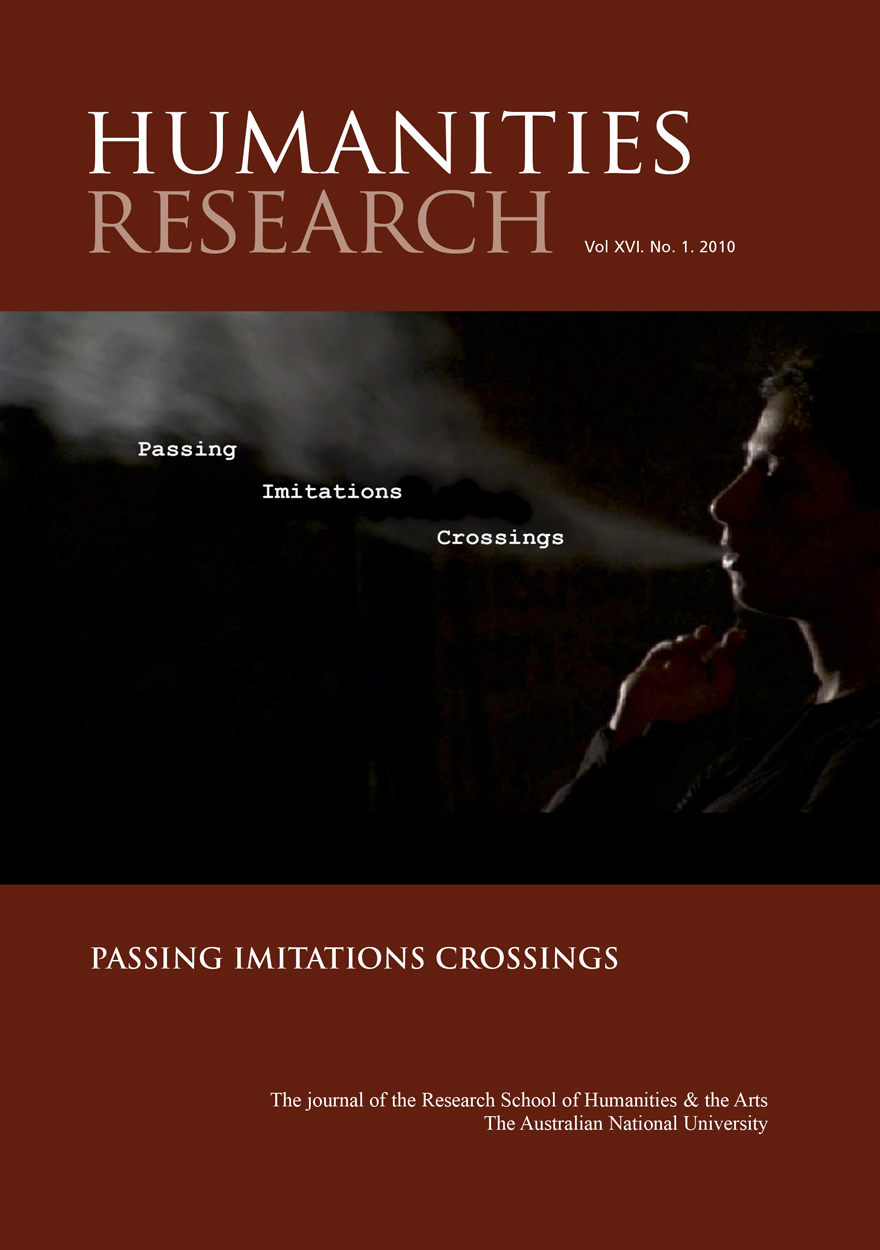
Humanities Research: Volume XVI. No. 1. 2010 »
Passing, Imitations, Crossings
Edited by: Monique Rooney, Carolyn Strange
Publication date: April 2010
Humanities Research is an internationally peer-reviewed journal published by the Research School of Humanities at The Australian National University. The Research School of Humanities came into existence in January 2007 and consists of the Humanities Research Centre, Centre for Cross-Cultural Research, National Europe Centre and Australian National Dictionary Centre. Launched in 1997, issues are thematic with guest editors and address important and timely topics across all branches of the humanities.
Download for free
Not available for purchase
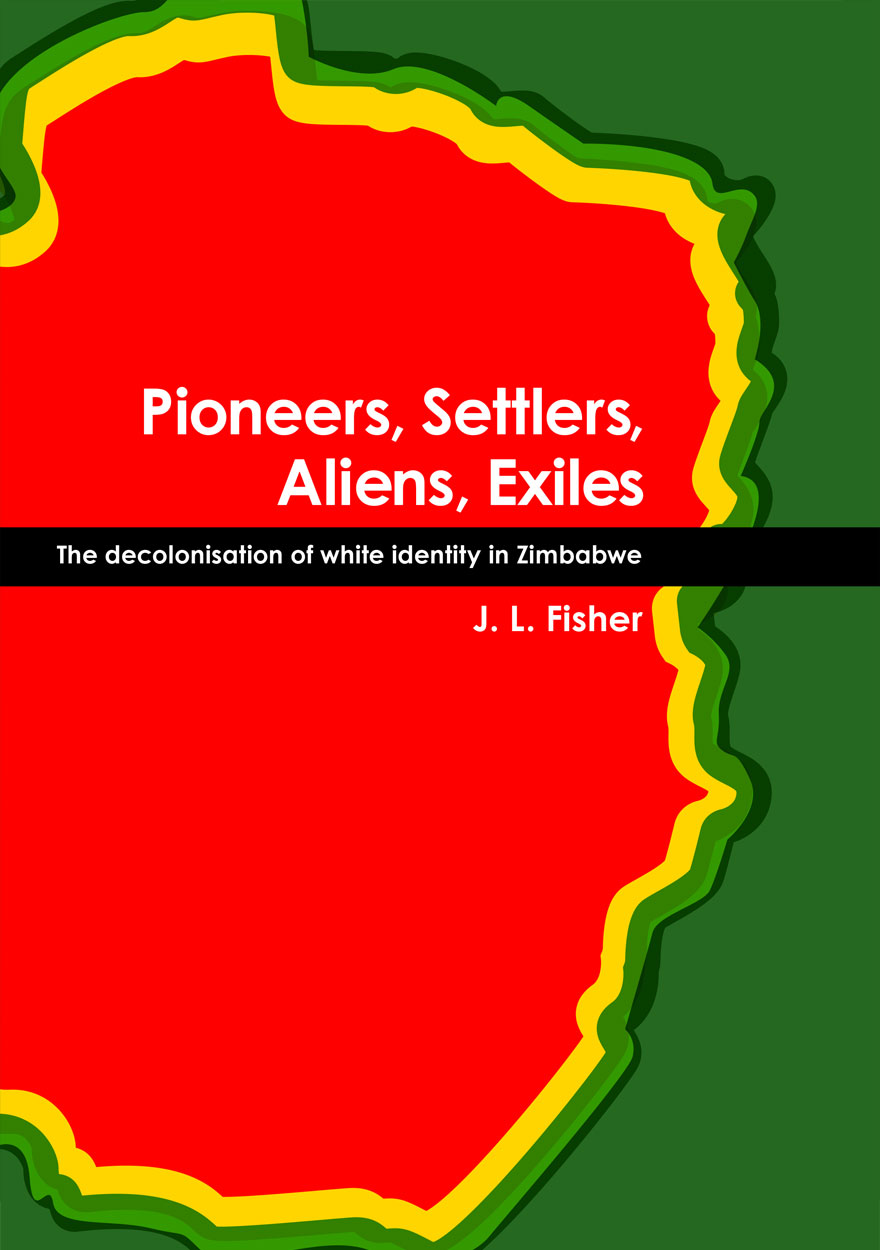
Pioneers, Settlers, Aliens, Exiles »
The decolonisation of white identity in Zimbabwe
Authored by: J. L. Fisher
Publication date: March 2010
What did the future hold for Rhodesia’s white population at the end of a bloody armed conflict fought against settler colonialism? Would there be a place for them in newly independent Zimbabwe? Pioneers, Settlers, Aliens, Exiles sets out the terms offered by Robert Mugabe in 1980 to whites who opted to stay in the country they thought of as their home. The book traces over the next two decades their changing relationship with the country when the post-colonial government revised its symbolic and geographical landscape and reworked codes of membership. Particular attention is paid to colonial memories and white interpellation in the official account of the nation’s rebirth and indigene discourses, in view of which their attachment to the place shifted and weakened. As the book describes the whites’ trajectory from privileged citizens to persons of disputed membership and contested belonging, it provides valuable background information with regard to the land and governance crises that engulfed Zimbabwe at the start of the twenty-first century.

Anomie and Violence »
Non-truth and Reconciliation in Indonesian Peacebuilding
Authored by: John Braithwaite, Valerie Braithwaite, Michael Cookson, Leah Dunn
Publication date: March 2010
Indonesia suffered an explosion of religious violence, ethnic violence, separatist violence, terrorism, and violence by criminal gangs, the security forces and militias in the late 1990s and early 2000s. By 2002 Indonesia had the worst terrorism problem of any nation. All these forms of violence have now fallen dramatically. How was this accomplished? What drove the rise and the fall of violence? Anomie theory is deployed to explain these developments. Sudden institutional change at the time of the Asian financial crisis and the fall of President Suharto meant the rules of the game were up for grabs. Valerie Braithwaite’s motivational postures theory is used to explain the gaming of the rules and the disengagement from authority that occurred in that era. Ultimately resistance to Suharto laid a foundation for commitment to a revised, more democratic, institutional order. The peacebuilding that occurred was not based on the high-integrity truth-seeking and reconciliation that was the normative preference of these authors. Rather it was based on non-truth, sometimes lies, and yet substantial reconciliation. This poses a challenge to restorative justice theories of peacebuilding.

Racial Folly »
A Twentieth-Century Aboriginal Family
Authored by: Gordon Briscoe
Publication date: February 2010
Briscoe’s grandmother remembered stories about the first white men coming to the Northern Territory. This extraordinary memoir shows us the history of an Aboriginal family who lived under the race laws, practices and policies of Australia in the twentieth century. It tells the story of a people trapped in ideological folly spawned to solve ‘the half-caste problem’. It gives life to those generations of Aboriginal people assumed to have no history and whose past labels them only as shadowy figures.
Briscoe’s enthralling narrative combines his, and his contemporaries, institutional and family life with a high-level career at the heart of the Aboriginal political movement at its most dynamic time. It also documents the road he travelled as a seventeen year old fireman on the South Australia Railways to becoming the first Aboriginal person to achieve a PhD in history.
For more information on Aboriginal History Inc. please visit aboriginalhistory.org.au.

East Asia Forum Quarterly: Volume 2, Number 1, 2010 »
Publication date: February 2010
East Asia Forum Quarterly grew out of East Asia Forum (EAF) online, which has developed a reputation for providing a platform for the best in Asian analysis, research and policy comment on the Asia Pacific region in world affairs. EAFQ aims to provide a further window onto research in the leading research institutes in Asia and to provide expert comment on current developments within the region. The East Asia Forum Quarterly, like East Asia Forum online, is an initiative of the East Asia Forum (EAF) and its host organisation, the East Asian Bureau of Economic Research (EABER) in the Crawford School of Economics and Government in the College of Asia & the Pacific at The Australian National University.
Download for free
Not available for purchase

Gunnar Landtman in Papua »
1910 to 1912
Authored by: David Lawrence, Pirjo Varjola
Publication date: January 2010
Despite poverty and neglect the coastal Kiwai of the northern Torres Strait and Fly estuary are a strong and vibrant people with a long tradition of work in the marine industries of the Torres Strait. Regrettably their current social, economic and political problems are marginal to both Papua New Guinea and Australia. Gunnar Landtman’s research, undertaken between 1910 and 1912, is still a foundation stone for understanding the position of the Kiwai today. In those two years in Papua, Landtman managed to record a large collection of valuable legends and stories, many of which are still told today. He travelled widely throughout the Torres Strait, the southwest coast of Papua and the Fly estuary and even to the Gulf District. He made a comprehensive collection of Kiwai material culture now housed in the Museum of Cultures in Helsinki and a second, duplicate set for the Cambridge Museum. He also collected some of the earliest examples of Gogodala material culture available for research. In 1913, he published, Nya Guinea färden [New Guinea expedition], a detailed travelogue of his work and life among the Kiwai and, while he wrote a substantial corpus of work on the Kiwai in English, Swedish and Finnish over the next twenty years, this personal account in Swedish has not been translated into English before. It forms a crucial link between Landtman’s serious academic works and his intimate personal journey of discovery. The aim of this book is to bring the personal face of the serious anthropologist to greater attention.
David Lawrence began studying the Gunnar Landtman collections held by the National Museum of Finland when he was researching customary exchange across the Torres Strait for his doctorate at James Cook University. He was also fortunate to be able to spend two years of fieldwork in the Fly estuary region and visited nearly all the communities described by Landtman. He is a Visiting Fellow at the Resource Management in Asia/Pacific program of The Australian National University and has published works on Kakadu National Park and the Great Barrier Reef Marine Park.
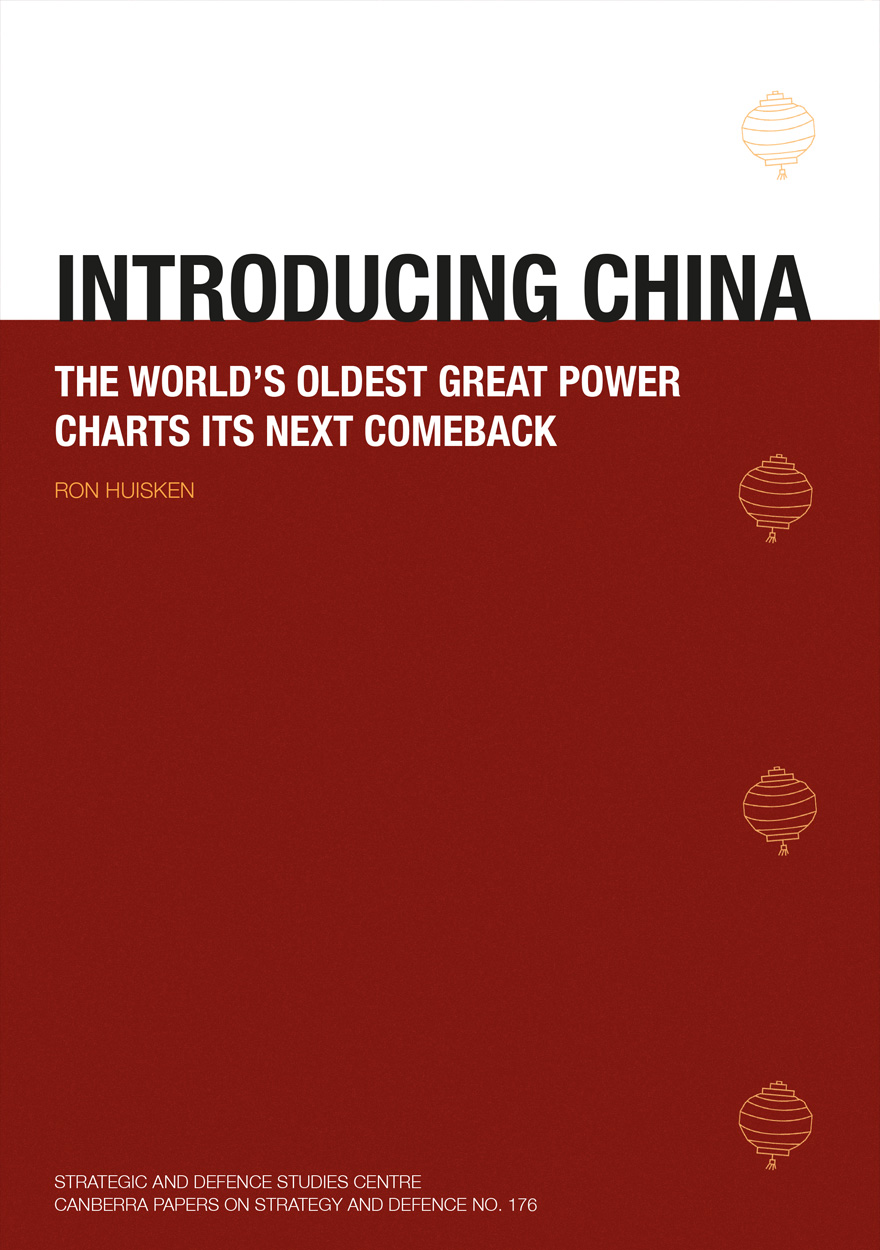
Introducing China »
The World's Oldest Great Power Charts its Next Comeback
Authored by: Ron Huisken
Publication date: January 2010
China’s transformation has been patiently, methodically and very deliberately constructed by a leadership group that has equally carefully protected its monopoly on power. Today’s China is proceeding with great seriousness and determination to become a first-rank state with a balanced portfolio of power and no major vulnerabilities. China takes itself very seriously and is inviting the world to overlook the formidable hard power assets it is determined to acquire in favour of simply enjoying the fruits of its market and trusting in the sincerity of its rhetoric on being determined to become a benign and peaceful new-age major power.
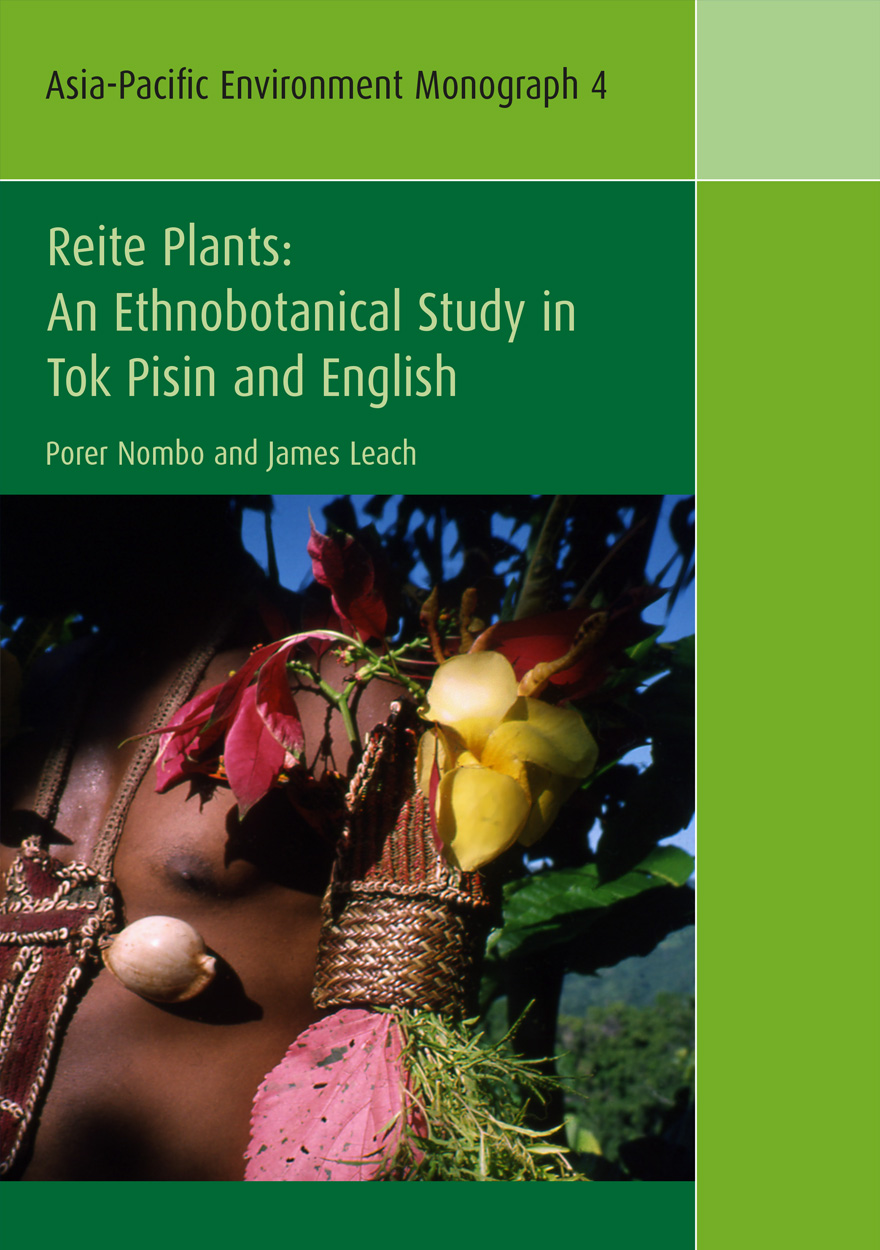
Reite Plants »
An Ethnobotanical Study in Tok Pisin and English
Authored by: Porer Nombo, James Leach
Publication date: January 2010
Reite Plants is a documentation and discussion of the uses of plants by speakers of the Nekgini language, a people who reside in the hinterland of the Rai Coast in northern Papua New Guinea. High quality images and detailed information about traditional customary practices using plants provide a unique entry into understanding Nekgini social and cultural life. The book contains a discussion of the ownership of plant knowledge in the context of both local and contemporary global trends. As a dual language, co-authored text, the book is a unique contribution to the ethnobotany and anthropology of Melanesia. Reite Plants represents the product of a long term collaborative work between the authors.
This book makes an important contribution … Nombo and Leach provide an exciting example of how much a deeper exploration of cultural context adds to the field of ethnobotany. It will make very good company with the classic ethnobiological collaborative work of Saem Majnep and Ralph Bulmer on the birds and animals of the Madang highlands.
— Robin Hide, The Australian National University
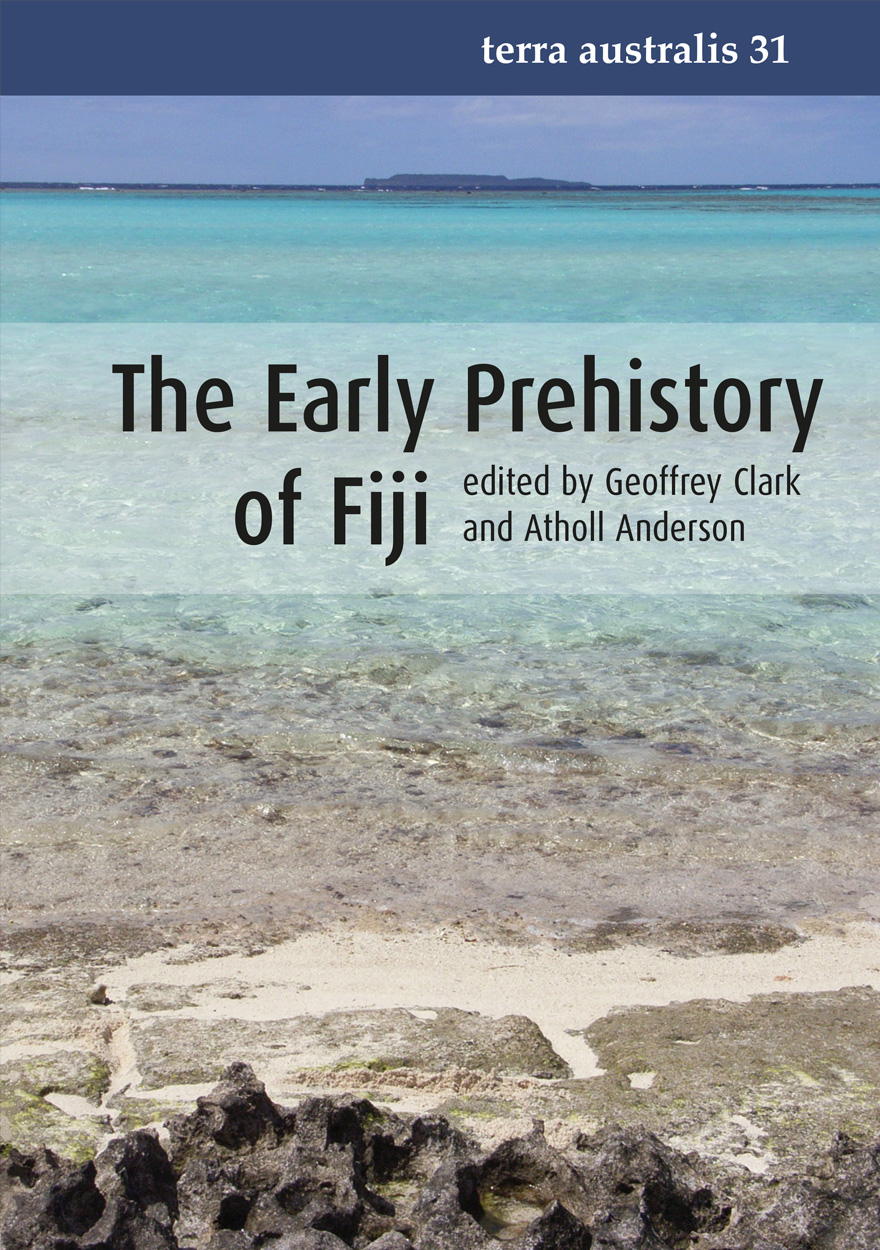
The Early Prehistory of Fiji »
Edited by: Geoffrey Clark, Atholl Anderson
Publication date: December 2009
I enjoyed reading this volume. It is rare to see such a comprehensive report on hard data published these days, especially one so insightfully contextualised by the editors’ introductory and concluding chapters. These scholars and the others involved in the work really know their stuff, and it shows. The editors connect the preoccupations of Pacific archaeologists with those of their colleagues working in other island regions and on “big questions” of colonisation, migration, interaction and patterns and processes of cultural change in hitherto-uninhabited environments. These sorts of outward-looking, big-picture contextual studies are invaluable, but all too often are missing from locally- and regionally-oriented writing, very much to its detriment. In sum, the work strongly advances our understanding of the early prehistory of Fiji through its well-integrated combination of original research and the reinterpretation of existing knowledge in the context of wider theoretical and historical concerns. In doing so The Early Prehistory of Fiji makes a truly substantial contribution to Pacific and archaeological scholarship.
Professor Ian Lilley, The University of Queensland
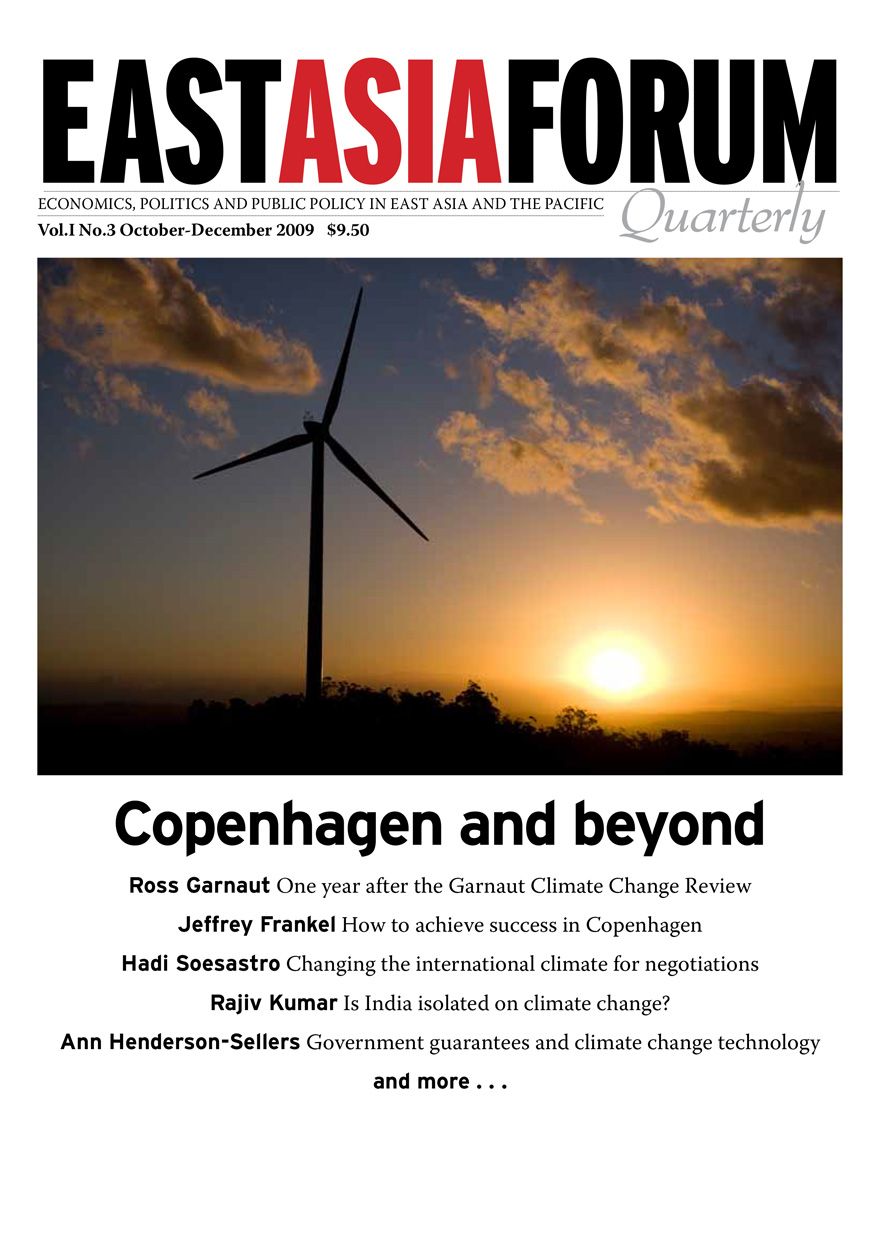
East Asia Forum Quarterly: Volume 1, Number 3, 2009 »
Publication date: December 2009
East Asia Forum Quarterly grew out of East Asia Forum (EAF) online, which has developed a reputation for providing a platform for the best in Asian analysis, research and policy comment on the Asia Pacific region in world affairs. EAFQ aims to provide a further window onto research in the leading research institutes in Asia and to provide expert comment on current developments within the region. The East Asia Forum Quarterly, like East Asia Forum online, is an initiative of the East Asia Forum (EAF) and its host organisation, the East Asian Bureau of Economic Research (EABER) in the Crawford School of Economics and Government in the College of Asia & the Pacific at The Australian National University.
Download for free
Not available for purchase

Medical Student Journal of Australia: Volume One, Issue 1 »
Publication date: December 2009
The Medical Student Journal of Australia provides the medical school of The Australian National University with a platform for medical students to publish their work in a peer-reviewed journal, communicating the results of medical and health research information clearly, accurately and with appropriate discussion of any limitations or potential bias.
Download for free
Not available for purchase

Agenda - A Journal of Policy Analysis and Reform: Volume 16, Number 4, 2009 »
Edited by: William Coleman
Publication date: December 2009
Agenda is a refereed, ECONLIT-indexed and RePEc-listed journal of the College of Business and Economics, The Australian National University. Launched in 1994, Agenda provides a forum for debate on public policy, mainly (but not exclusively) in Australia and New Zealand. It deals largely with economic issues but gives space to social and legal policy and also to the moral and philosophical foundations and implications of policy.
Subscribe to the Agenda Alerting service if you wish to be advised on forthcoming or new issues.
Download for free
Not available for purchase
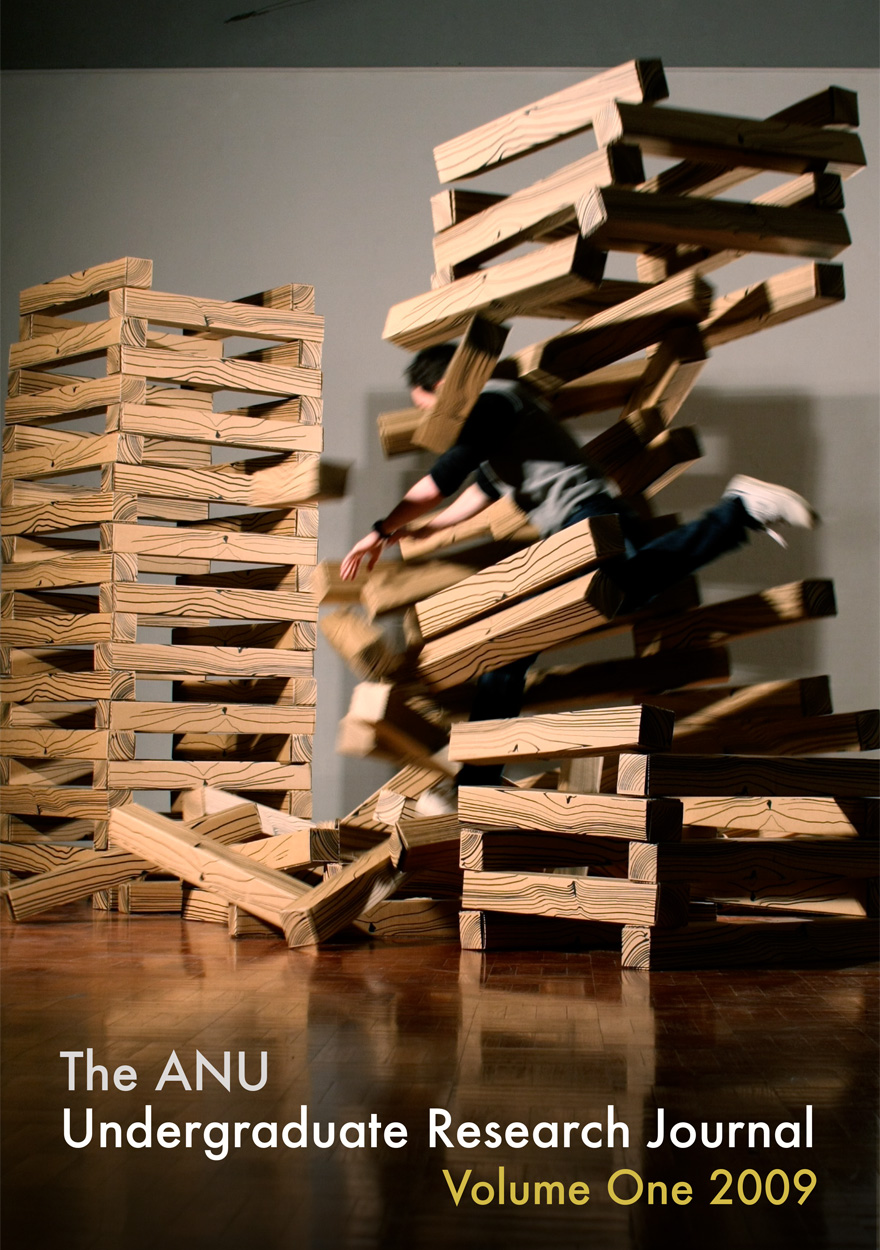
ANU Undergraduate Research Journal: Volume One, 2009 »
Publication date: 2009
The ANU Undergraduate Research Journal presents outstanding essays taken from ANU undergraduate essay submissions. The breadth and depth of the articles chosen for publication by the editorial team and reviewed by leading ANU academics demonstrates the quality and research potential of the undergraduate talent being nurtured at ANU across a diverse range of fields.
Established in 2008, AURJ was designed to give students a unique opportunity to publish their undergraduate work; it is a peer-reviewed journal managed by a team of postgraduate student editors, with guidance from the staff of the Office of the Dean of Students.
Download for free
Not available for purchase

Phoenix from the Ashes? »
Russia's Defence Industrial Complex and its Arms Exports
Authored by: Cameron Scott Mitchell
Publication date: December 2009
The continued existence of the Russian defence and arms industry (OPK) was called into question following the disintegration of the Soviet Union in 1991. Industry experts cited the lack of a domestic market, endemic corruption, and excess capacity within the industry as factors underpinning its predicted demise. However, the industry’s export customers in China, India and Iran during those early years became the OPK’s saving grace. Their orders introduced hard currency back into the industry and went a long way to preventing the forecasted OPK collapse. Although pessimistic predictions continued to plague the OPK throughout the 1990s, the valuable export dollars provided the OPK the breathing space it needed to claw back its competitive advantage as an arms producer. That revival has been further underpinned by a new political commitment, various research and development initiatives, and the restoration of defence industry as a tool of Russian foreign policy.
The short-term future of the Russian OPK looks promising. The rising domestic defence order is beginning to challenge the export market as the OPK’s most important customer. Meanwhile, exports will be safeguarded by continued foreign demand for niche Russian defence products. Although the long-term future of the OPK is more difficult to predict, Russia’s solid research and development foundation and successful international joint military ventures suggest that the current thriving trend in exports is likely to continue. Russia represents the next generation of affordable and rugged military equipment for the arsenals of the developing world. Coupled with Russia’s growing ability to rearm itself through higher oil prices and a more streamlined defence industry, the future of the OPK looks bright.
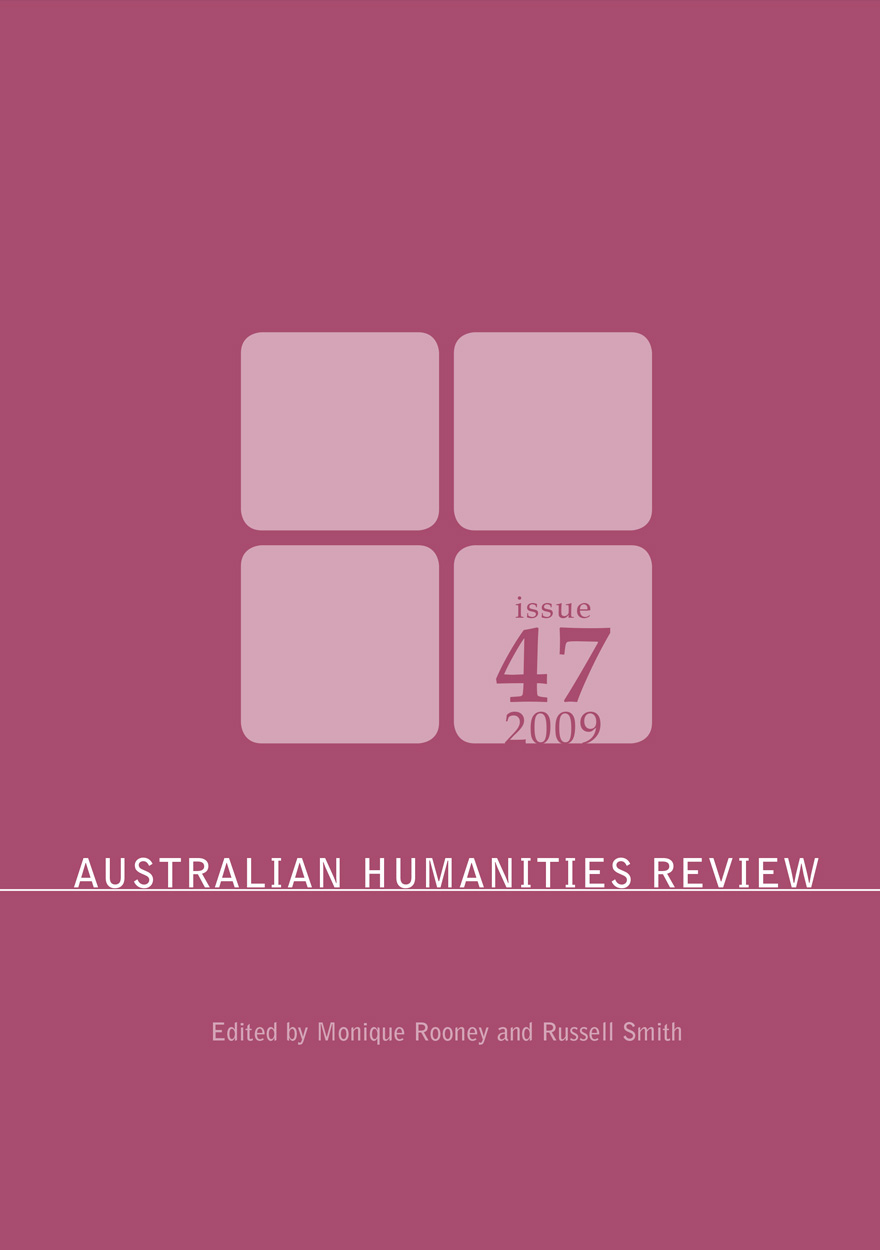
Australian Humanities Review: Issue 47, 2009 »
Edited by: Monique Rooney, Russell Smith
Publication date: December 2009
Australian Humanities Review is a peer-reviewed interdisciplinary journal featuring articles, essays and reviews focusing on a wide array of topics related to literature, culture, history and politics.
Download for free
Not available for purchase

East Asia Forum Quarterly: Volume 1, Number 1, 2009 »
Publication date: November 2009
East Asia Forum Quarterly grew out of East Asia Forum (EAF) online, which has developed a reputation for providing a platform for the best in Asian analysis, research and policy comment on the Asia Pacific region in world affairs. EAFQ aims to provide a further window onto research in the leading research institutes in Asia and to provide expert comment on current developments within the region. The East Asia Forum Quarterly, like East Asia Forum online, is an initiative of the East Asia Forum (EAF) and its host organisation, the East Asian Bureau of Economic Research (EABER) in the Crawford School of Economics and Government in the College of Asia & the Pacific at The Australian National University.
Download for free
Not available for purchase

East Asia Forum Quarterly: Volume 1, Number 2, 2009 »
Publication date: November 2009
East Asia Forum Quarterly grew out of East Asia Forum (EAF) online, which has developed a reputation for providing a platform for the best in Asian analysis, research and policy comment on the Asia Pacific region in world affairs. EAFQ aims to provide a further window onto research in the leading research institutes in Asia and to provide expert comment on current developments within the region. The East Asia Forum Quarterly, like East Asia Forum online, is an initiative of the East Asia Forum (EAF) and its host organisation, the East Asian Bureau of Economic Research (EABER) in the Crawford School of Economics and Government in the College of Asia & the Pacific at The Australian National University.
Download for free
Not available for purchase



